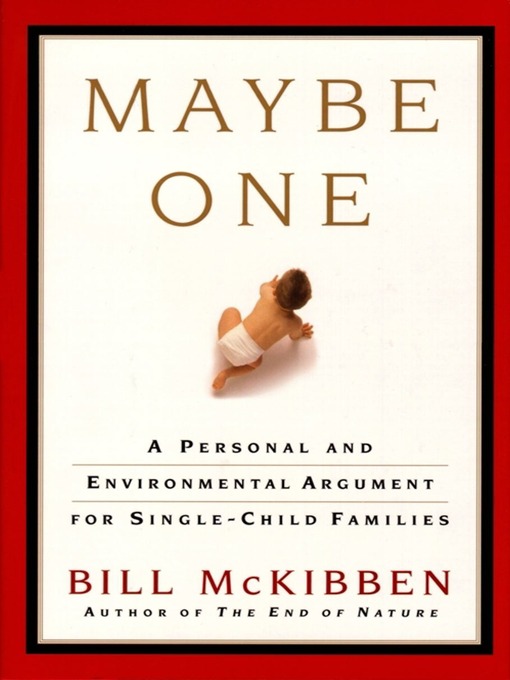
Maybe One
A Personal and Evironmental Argument for Single Child Families
- اطلاعات
- نقد و بررسی
- دیدگاه کاربران
نقد و بررسی

Starred review from December 29, 1997
In his arresting debut, The End of Nature, McKibben eloquently argued that saving the planet required immediate sacrifice from each one of us. Passionately signing up for the most radical measures himself, the author declared in that book that he and his wife "try very hard not to think about how much we'd like a baby." His new book describes how he has altered his view, although he remains committed to curbing life choices that unduly stress the environment. Now that McKibben and his wife are happily living with a four-year-old daughter, Sophie, he speaks to the reader not as an isolated prophet in the wilderness but as a father affirming the value of family life while still bringing vast environmental issues into the realm of personal decisions. Careful not to insist that single-child families are the solution, McKibben vividly portrays the conditions that will worsen if our population continues to grow at its current rate: denuded lands, rising oceans, extinct species, choking pollution. Blending scripture and the words of ancient philosophers with a welter of statistical projections, McKibben explores the hopes and fears that attach themselves to the birth of babies, including the racism that often colors discussion of immigration and family planning. What stands out in this eloquent book, however, is McKibben's wonderfully illuminating and entertaining work in tracking down our national prejudice against only children and single-child families. There and throughout this call to arms, the reader feels the added dimension of a father's love. First serial to Atlantic Monthly; author tour.

February 15, 1998
A noted environmental writer on dealing with the population crisis one child at a time.

May 15, 1998
McKibben's plea for voluntary reduction in childbearing in the U.S.--if not to save the planet, at least to buy it time--is most personal, for he is intentionally the parent of just one child. He makes the abstract immediate and opens the debate over intentional single-child families by discussing the fallacies about only children, the economic effects of an aging population and a stable economy, the surprising role of religion in childbearing decisions, the U.S. tendency to become bigger in sheer number of persons and in resource consumption, and even the environmental effects of reduced immigration. Arguing against the ideology of consumerism and the innate aversion to "lessening ourselves," McKibben will anger many, despite the breadth of his sources and his nonconfrontational style. And the book has weaknesses; for instance, much more attention is devoted to child development than to the thornier topic of immigration. Given that the U.S. population is projected to be 400 million in 2020, a timely book. ((Reviewed May 15, 1998))(Reprinted with permission of Booklist, copyright 1998, American Library Association.)




دیدگاه کاربران